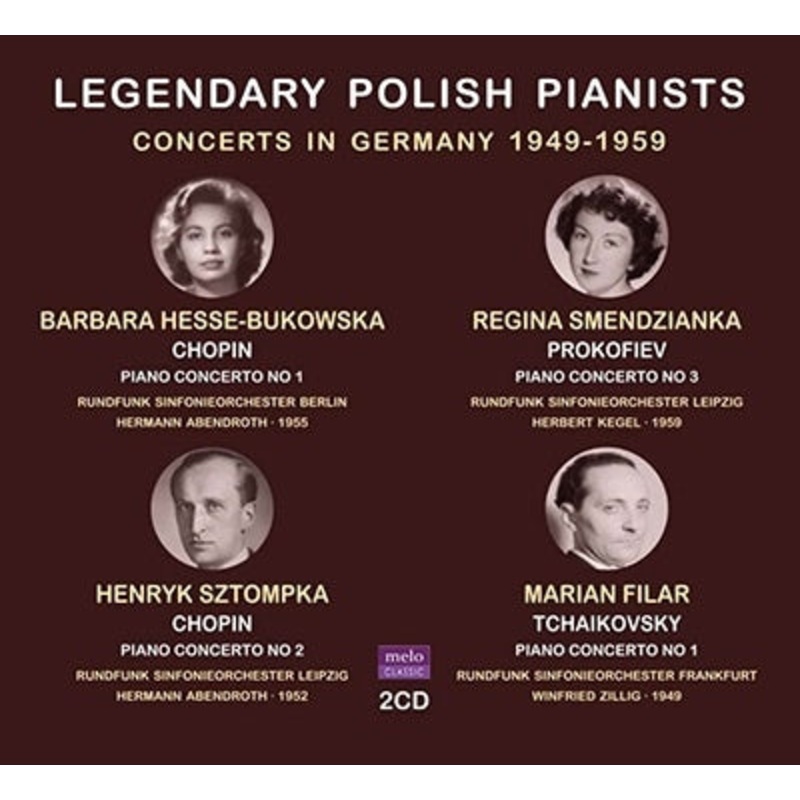
Credits:
Barbara Hesse-Bukowska, Henrik Szymanowski, Marian Fila, Regina Smendzianka.
Description:
As the title suggests, the album contains performances by four pianists from Poland. Henryk Sztompka (1901-1964) studied at the Warsaw Conservatory before participating in the first International Chopin Piano Competition in 1927. He was very active in the 1930s, but was forced to go into hiding in Warsaw during World War II. After the war, he resumed his international activities and was a piano professor at the Cracow Conservatory until his death. There have been only a few recordings of his piano concerto No. 2 by Chopin, but now a recording has been unearthed, and it is conducted by the great master Hermann Arbentrodt. This is one of the most treasured releases from MELOCLASSIC. Barbara Hesse-Bukowska (1930-2013) was born in Lodz, Central Poland. In 1953, she won the fifth prize in the piano section of the International Ron Thibaud Competition in Paris. In 1953, she won fifth place in the piano section of the Prix Ron Thibaud in Paris, but was praised by the jury, Arthur Rubinstein, who also made her famous.He was active internationally in the 1950s and 1960s, but from the 1970s onward, he focused on teaching, and was known as a distinguished teacher at the Warsaw Conservatory of Music. Marian Filler (1917-2012) is a Warsaw-born pianist (male). She survived from a concentration camp during World War II. After the war, he worked in Germany before making his U.S. debut in 1950 and emigrating; in 1958 he became head of piano in the music department at Temple University, where he was a longtime instructor; he lived to be 94 years old, but was not much associated with commercial recordings, and until MELOCLASSIC released a CD of his Chopin cycle in 2015, he was largely forgotten. He was largely forgotten. Here we hear a stunning Tchaikovsky concerto from his German period. Regina Smenjanka (1924-2011) (September 15, 1924) was born in Torun. She was a young girl prodigy, and from 1936 she studied at the Toln Conservatory under the aforementioned Henryk Sztompka. In her late teens, she was involved in World War II, and only after the war was she able to study fully at the Krakow Conservatory. She won the 11th prize at the 4th International Chopin Piano Competition in 1949, her first postwar prize. It was not until the late 1950s that she became internationally famous, and in 1961 she had a successful North American musical tour. A highly respected educator, she is also known in Japan for her book "How Do You Play Chopin? (How Do You Play Chopin?) in Japan.Although there were not a few recordings, CDs are now almost impossible to find. This recording of Prokofiev's Piano Concerto No. 3, with the young Herbert Koegel as accompaniment conductor, is a delight. Tobu Shoji Co.
